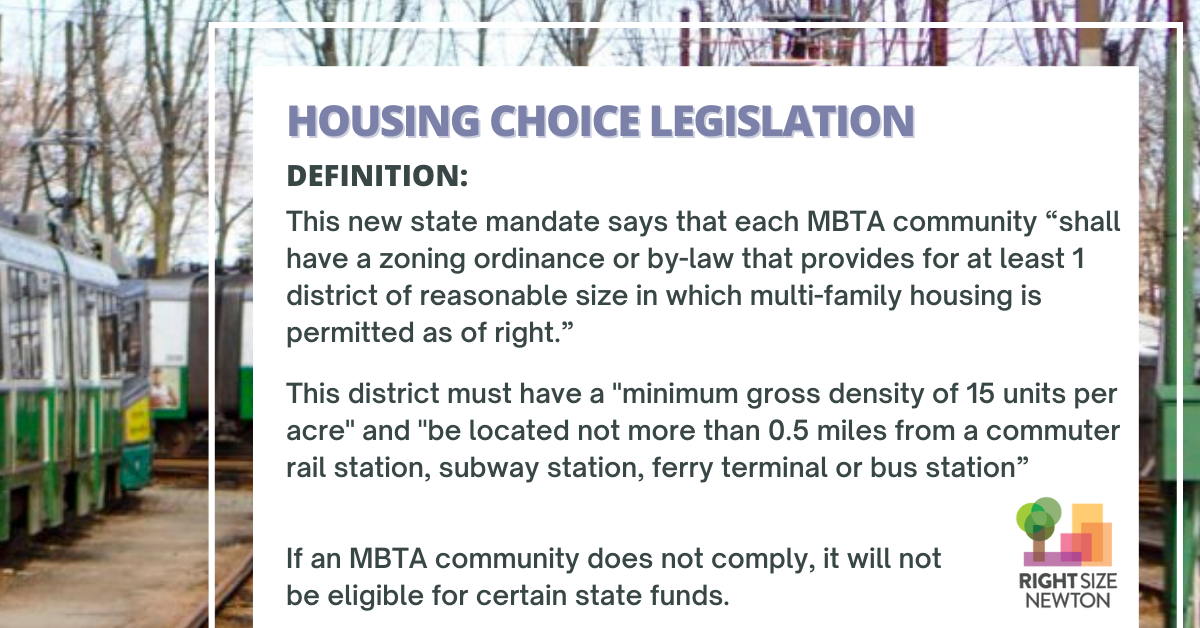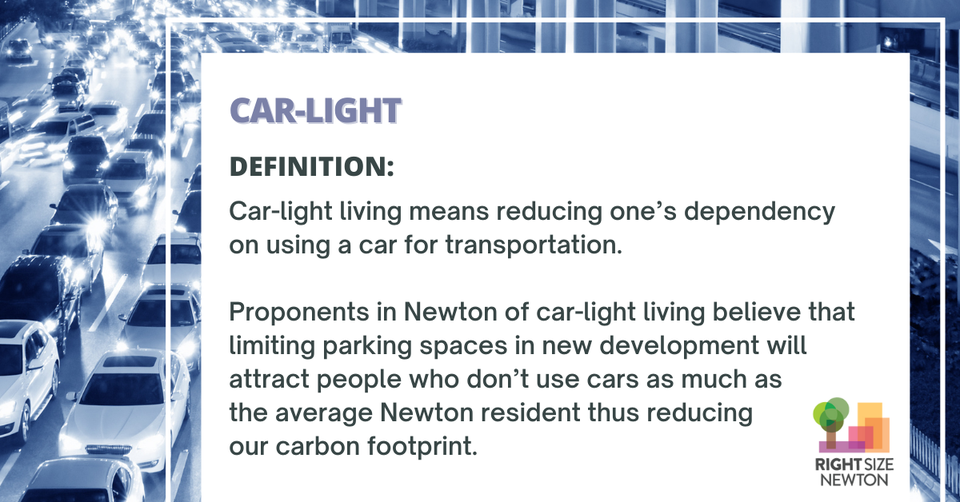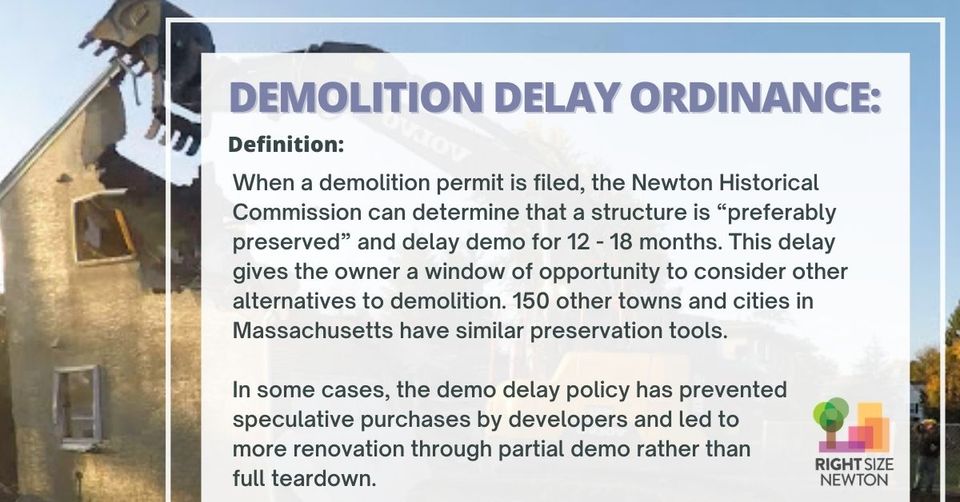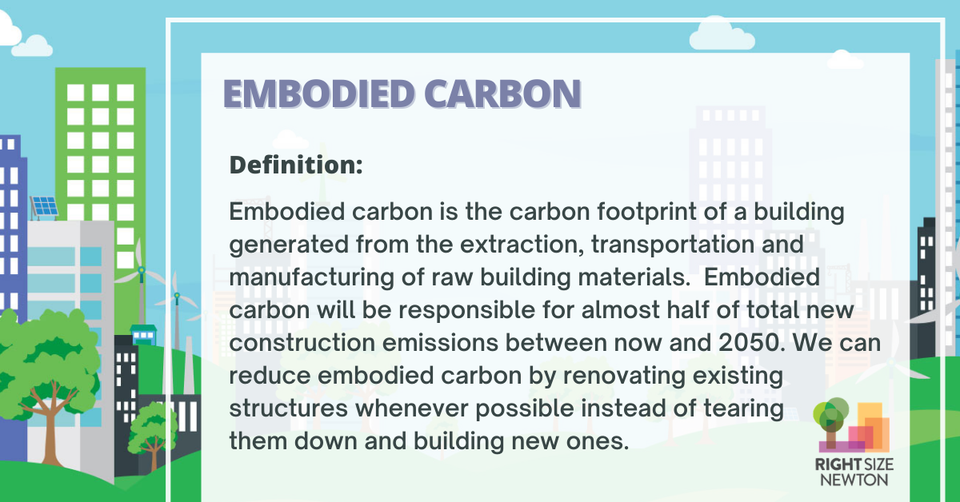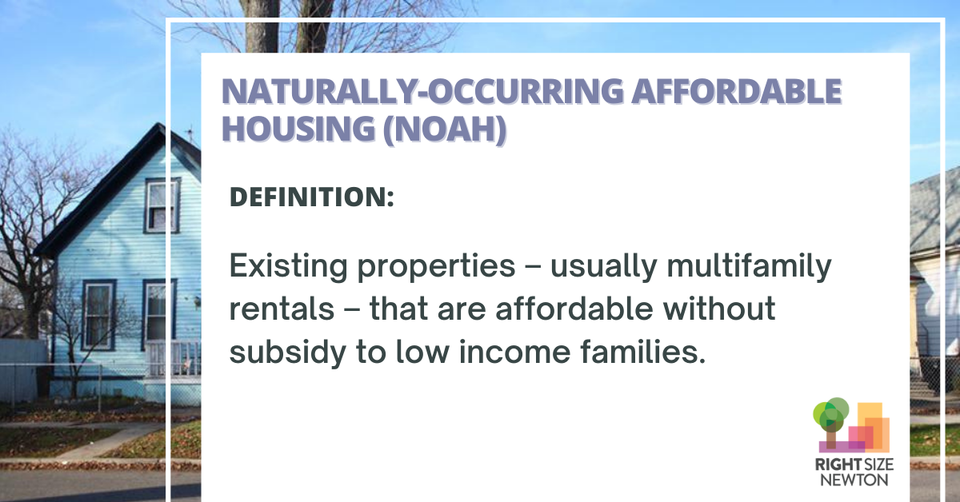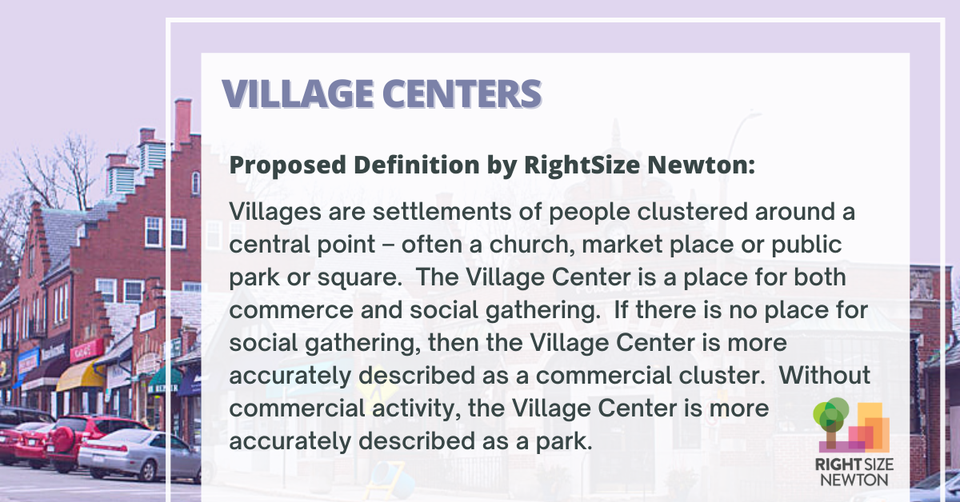GLOSSARY
40B Law was adopted by Massachusetts in 1969 to encourage the building of housing for low and moderate-income people. The law allows developers to build affordable housing by allowing for a streamlined permit process and more flexible zoning rules. The process is available to developments that devote at least 20 to 25% of their units to low and moderate income families. (Source)
Accessory Apartments, sometimes called an “in-law apartment”, is a separate living area of a larger house but with its own private entrance. These units can be built “by-right” anywhere in Newton. However, the property owner must live in one of the units and there are other restrictions. (Source)
Accessory Dwelling Units (ADUs) are similar to Accessory Apartments but the crucial difference is that they do not need to be attached to the main house. However, there are usually severe size restrictions such as a maximum of 1,000 square feet and setbacks from adjacent properties must be met. ADU’s are not legal in Newton. However, they have become very popular in Los Angeles. (Source)
Average Median Income (AMI) of a metropolitan area is determined by the US Census Bureau periodic census of household incomes. The 2021 AMI for a family of four in the Boston Metropolitan Area is $120,800. (Source)
“By-right” means that a development conforms to all zoning requirements and can be built without any special approval other than obtaining a building permit.
Car-light living means reducing one’s dependency on using a car for transportation.
Proponents in Newton of car-light living believe that limiting parking spaces in new development will attract people who don’t use cars as much as the average Newton resident thus reducing our carbon footprint.
Local governments that impose property taxes classify property into two major categories, namely, commercial and residential.
In Newton, the residential tax rate is $10.76 for every $1,000 of assessed valuation. The commercial tax rate is higher at $20.12 for every $1,000 of assessed value.
This Ordinance defines some of the roles of the Newton Historical Commission, similar to 150 other towns and cities in Massachusetts. When someone files for a demo permit, a delay period of 12 or 18 months can be required, if the Newton Historical Commission determines that a structure is “preferably preserved.” This delay gives the owner a window of opportunity to consider other alternatives
instead of rushing to demolition.
Awareness of the demo delay policy has prevented speculative purchases by developers in some cases, and led to more renovation through partial demo rather than full teardown.
Detached Accessory Dwelling Units (ADU’s) are separate residential structures of limited size on the same property as an existing house. They cannot be sold separately from the main house.
Floor Area Ratio (FAR) is the ratio between the living area of a building and the total area of the parcel the building is on. Living areas generally exclude basements and attics. Limiting the allowable FAR is an important tool for controlling the size of buildings that can be legally built.
Form-Based Zoning (FBZ) is an alternative to conventional zoning. FBZ specifies the specific building shapes that are allowed and sets the standards for the design of streets and open spaces. FBZ is generally used for new developments and reviving blighted areas. (Source)
This new state mandate says that each MBTA community “shall have a zoning ordinance or by-law that provides for at least 1 district of reasonable size in which multi-family housing is permitted as of right.”
This district must have a “minimum gross density of 15 units per acre” and “be located not more than 0.5 miles from a commuter rail station, subway station, ferry terminal or bus station”
If an MBTA community does not comply, it will not be eligible for certain state funds.
Inclusionary Zoning requires that new developments designate a certain percentage to be sold or rented to low or moderate-income people. In Newton any new development with more than 7 units must set aside at least 15% for people whose income is 50% to 80% of the Average Median Income (AMI). (Source)
Landmarking is a determination by the Newton Historic Commission that a building, structure, landscape or place should be preserved and protected due to its historic significance. Usually only the exterior of a building is protected. Landmarks cannot be altered or demolished without the consent of the Newton Historic
Commission.
The Massachusetts’ Building Code defines multi-family housing as any dwelling for more than three households or families.
Existing properties – usually multifamily rentals – that are affordable without subsidy to low income families.
Established in 1975, the NHC consists of 7 permanent members and up to 7 alternates. All members are appointed by the Mayor and confirmed by the City Council.
The Newton Historical Commission is the City of Newton’s advisory body on preservation matters. It also designates and manages changes to Newton City Landmarks, manages changes to properties with Preservation Restrictions, manages the Demolition Delay Ordinance and comments on projects and provides advice from a preservation perspective.
Passive house is a voluntary standard for energy efficiency in a building, which reduces the building’s ecological footprint. It results in ultra-low energy buildings that require little energy for space heating or cooling.
Passive House buildings allow for heating and cooling related energy savings of up to 90% compared with typical building stock and over 75% compared with average new builds.
Redlining is an illegal practice in which banks decline to make loans in certain neighborhoods based on the racial or ethnic characteristics of the residents.
“Safe harbor” is part of the 40B Massachusetts affordable housing law. When 10% of a municipality’s housing stock qualifies as “affordable” according to the state’s definition (or if 1.5% of a municipality’s buildable land area is occupied by affordable housing) then developers do not have the right to appeal to the state if a local Zoning Board of Appeals does not approve a plan that would build more affordable housing. Thus, a municipality would achieve “safe harbor” from the 40B law.
Spot zoning occurs when a municipality singles out a parcel of land for different zoning treatment than neighboring parcels, all for the economic benefit of the landowner or developer. (Source)
Spot Zoning is illegal in Massachusetts. However, Massachusetts courts have ruled that plaintiffs must prove that a zoning change is in conflict with the state’s Zoning Act (Ch. 40A). If a municipality has a legitimate reason for changing the zoning of a specific parcel (e.g., to further the goal of building more affordable housing), then it does not violate the prohibition against Spot Zoning. See famous court case.
Property setbacks are building restrictions imposed on property owners. A setback is the distance from the curb, property line, or nearby structure that cannot be built on. Setbacks create a feeling of openness.
Local governments determine these setback distances. Each city will have its own rules, meaning each area and even zoning district will be different.
Subsidized Housing Inventory or SHI – a state-wide inventory of subsidized, deed-restricted housing in Massachusetts that must be sold or rented to people whose income is less than 80% of the Average Median Income (AMI). In Newton 80% AMI for a family of four in 2021 is $101,050. (source)
A dense residential or mixed use development built adjacent to public transit in which residents are still car-dependent because there are few or no amenities such as shopping and parks within walking distance.
TOD, or transit-oriented development, means integrated urban places designed to bring people, activities, buildings, and public space together, with easy walking and cycling connection between them and near-excellent transit service to the rest of the city. The general purpose is to increase pedestrian and transit trips while reducing the number and length of auto trips. (Source)
Workforce Housing refers to dwellings that are set aside for middle-income people generally earning between 100% and 120% of AMI. Although these units are sold or rented at below-market rates, they do not qualify as “affordable” under the state’s definition.
The Newton Zoning Board of Appeals (ZBA) is a quasi-judicial body which interprets and enforces the City’s Zoning Ordinance. The ZBA is a five-member board appointed by the Mayor and confirmed by the City Council. All Chapter 40B developments are approved by the ZBA and developers sometimes target cities that have lenient ZBA members that will likely pass their projects.
If you can’t find the word you are looking for, please email rightsizenewton@gmail.com and we will add it for you!

